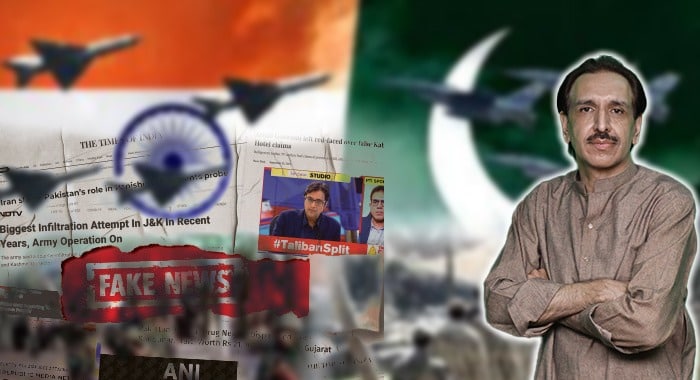Aqeel Yousafzai
As the latest episode of South Asian tension unfolds, one thing has become abundantly clear: Pakistan’s restraint, diplomacy, and strategic clarity have stood in sharp contrast to India’s belligerence and short-sighted aggression. In a region where both neighbors are nuclear-armed and emotionally charged narratives run deep, the importance of calm, rational statecraft cannot be overstated. And this time, Pakistan has clearly outclassed India on every diplomatic front.
India’s provocations are not new. For years, senior Indian officials have openly admitted to supporting insurgent networks in Balochistan and providing safe havens and financial assistance to TTP operatives destabilizing Khyber Pakhtunkhwa. Yet despite repeated provocations, including cross-border attacks and media warmongering, Pakistan has chosen not to escalate. Instead, it has consistently urged regional cooperation, counterterrorism coordination, and dialogue. The world took note.
In previous incidents—such as the attack on Express News, which was far more serious than recent events—Pakistan responded with measured concern, highlighting signs of foreign interference without leveling direct accusations or threatening retaliation. Compare this to India’s knee-jerk reaction to the most recent incident: unfounded allegations, threats of reprisal, and a rapid media campaign aimed at stoking nationalist fervor. What followed was both predictable and dangerous—regional destabilization, misinformation, and diplomatic embarrassment.
India’s attempt to leverage this incident for geopolitical gains spectacularly backfired. Within hours of New Delhi’s inflammatory statements, the international community began calling for calm. Pakistan’s Director General ISPR and its Foreign Minister swiftly held a joint press conference, laying out Pakistan’s position clearly and responsibly. The response from global powers was swift: restraint, dialogue, and de-escalation.
President Trump, known for his directness, dismissed India’s narrative, noting that Pakistan and India had been at odds for generations and that this latest standoff was not as novel as India portrayed. More tellingly, for the first time, the U.S. Secretary of State engaged both Pakistan and India simultaneously, urging peace and negotiation—a clear indication that Washington was not buying India’s one-sided version of events.
Even India’s long-time allies are growing wary. Russia, historically one of India’s main arms suppliers, has shown signs of distancing itself. China has firmly stood by Pakistan, emphasizing the need for stability in a region where it has deep strategic investments. In the Gulf, nations like Saudi Arabia, the UAE, and Qatar—major investors in Pakistan—have all quietly supported Islamabad’s principled stance.
Pakistan’s diplomatic victory is even more significant when seen in light of India’s internal turmoil. The Indian military is showing cracks, with senior generals being bypassed and internal cohesion weakening. Meanwhile, communal violence, anti-minority policies, and Hindu supremacist rhetoric are eroding India’s global image as a secular democracy.
The world is waking up to the dangers of India’s hard-state posture. Its bullying of neighbors—from Sri Lanka to Nepal—and its deteriorating ties with Bangladesh further underline a regional policy rooted not in cooperation, but coercion.
Yet amid this, Pakistan has surprised even its critics. Its political leadership, civil society, and media have spoken with one voice, showing composure and maturity. Unlike the Modi government’s reactionary politics, Islamabad has shown that it can act with responsibility—even under intense pressure.
This composure is not a sign of weakness but strength. Prime Minister Shehbaz Sharif’s recent remarks underline this resolve: Pakistan has suffered more from terrorism than any other country and will not allow anyone to weaponize that tragedy to justify aggression.
Religious extremism is surging globally—and India is a case study in how quickly democracy can be derailed by nationalist populism. Instead of rallying around hate, Pakistan chose unity. Instead of fanning war hysteria, it chose reason. And instead of succumbing to provocation, it chose peace.
It’s time the international community not only acknowledged this contrast—but acted on it. India’s recklessness is a threat not just to Pakistan, but to the entire region. And if the world truly believes in peace, stability, and multilateralism, it must begin to hold New Delhi accountable.
The days of accepting India’s narrative without question are over. Pakistan has shown what responsible leadership looks like. Now the world must decide whether it will continue to indulge the aggressor—or support the peacemaker.





